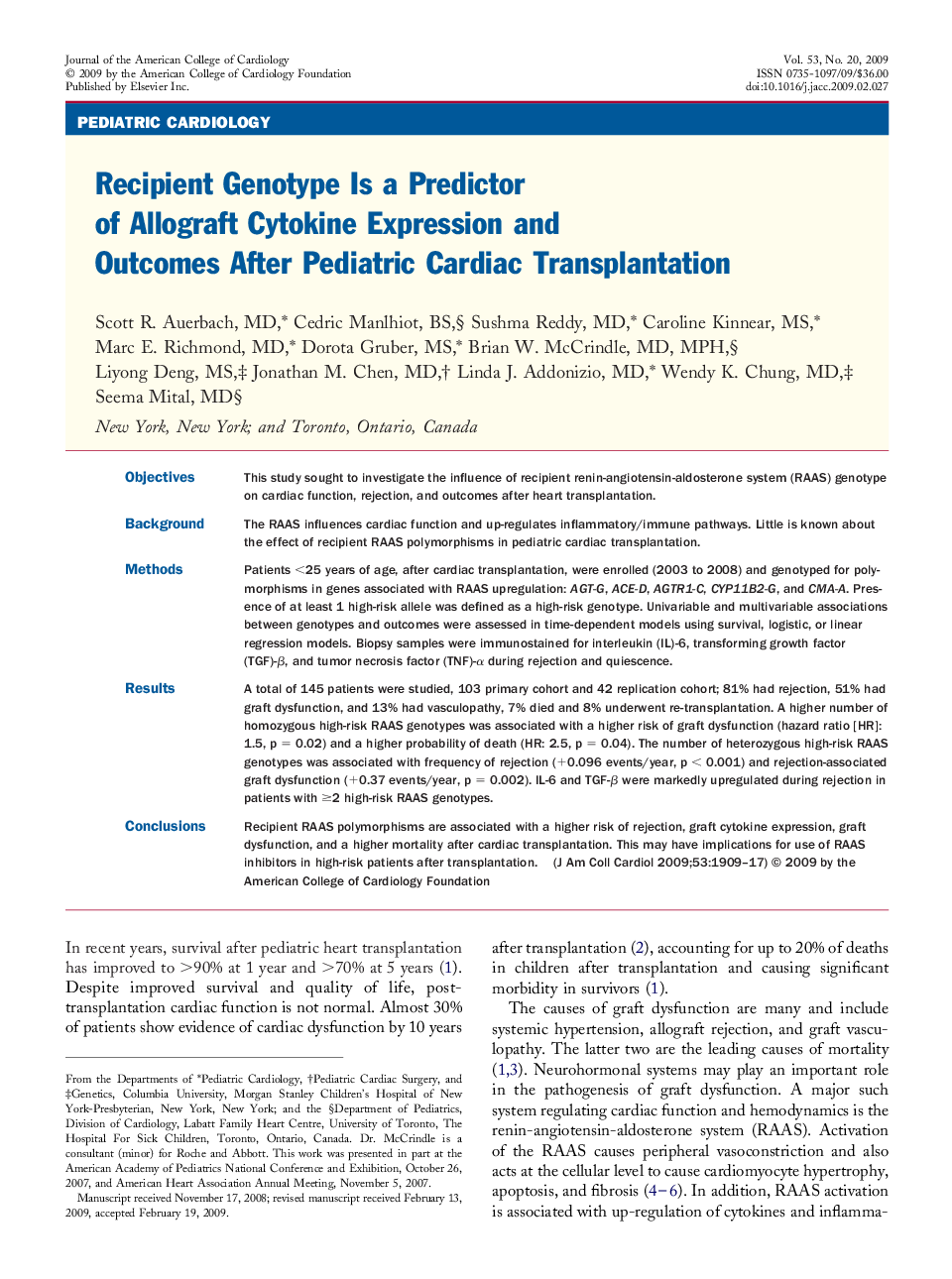| کد مقاله | کد نشریه | سال انتشار | مقاله انگلیسی | نسخه تمام متن |
|---|---|---|---|---|
| 2951410 | 1577369 | 2009 | 9 صفحه PDF | دانلود رایگان |

ObjectivesThis study sought to investigate the influence of recipient renin-angiotensin-aldosterone system (RAAS) genotype on cardiac function, rejection, and outcomes after heart transplantation.BackgroundThe RAAS influences cardiac function and up-regulates inflammatory/immune pathways. Little is known about the effect of recipient RAAS polymorphisms in pediatric cardiac transplantation.MethodsPatients <25 years of age, after cardiac transplantation, were enrolled (2003 to 2008) and genotyped for polymorphisms in genes associated with RAAS upregulation: AGT-G, ACE-D, AGTR1-C, CYP11B2-G, and CMA-A. Presence of at least 1 high-risk allele was defined as a high-risk genotype. Univariable and multivariable associations between genotypes and outcomes were assessed in time-dependent models using survival, logistic, or linear regression models. Biopsy samples were immunostained for interleukin (IL)-6, transforming growth factor (TGF)-β, and tumor necrosis factor (TNF)-α during rejection and quiescence.ResultsA total of 145 patients were studied, 103 primary cohort and 42 replication cohort; 81% had rejection, 51% had graft dysfunction, and 13% had vasculopathy, 7% died and 8% underwent re-transplantation. A higher number of homozygous high-risk RAAS genotypes was associated with a higher risk of graft dysfunction (hazard ratio [HR]: 1.5, p = 0.02) and a higher probability of death (HR: 2.5, p = 0.04). The number of heterozygous high-risk RAAS genotypes was associated with frequency of rejection (+0.096 events/year, p < 0.001) and rejection-associated graft dysfunction (+0.37 events/year, p = 0.002). IL-6 and TGF-β were markedly upregulated during rejection in patients with ≥2 high-risk RAAS genotypes.ConclusionsRecipient RAAS polymorphisms are associated with a higher risk of rejection, graft cytokine expression, graft dysfunction, and a higher mortality after cardiac transplantation. This may have implications for use of RAAS inhibitors in high-risk patients after transplantation.
Journal: Journal of the American College of Cardiology - Volume 53, Issue 20, 19 May 2009, Pages 1909–1917